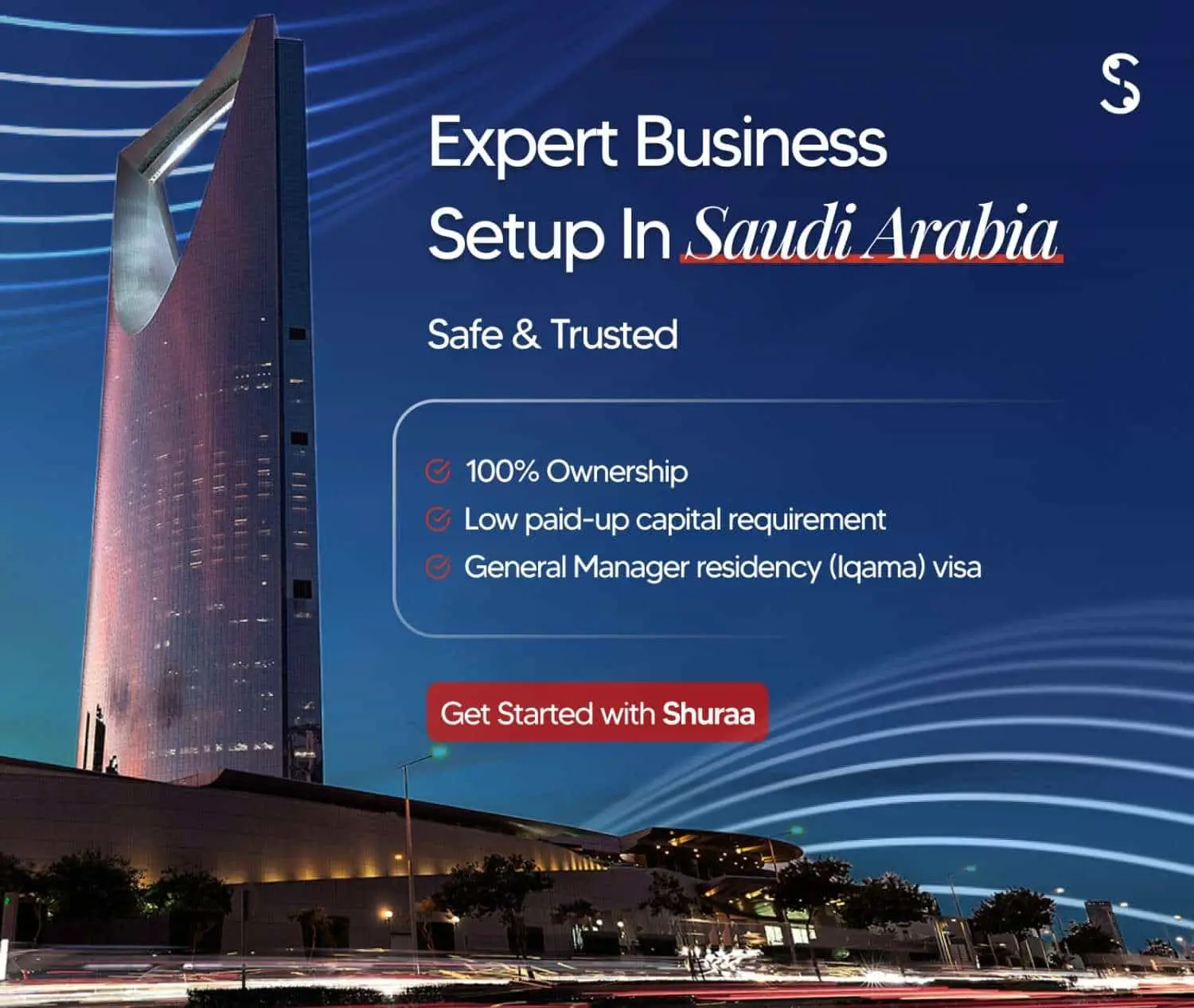Starting a company in Dubai or anywhere else worldwide is an important decision. It involves planning, conceptualising, researching, budgeting, setting up, and making decisions, among other things. It also requires guidance and assistance in selecting the right trade license for your business, especially if you are a new entrepreneur. Here, you will learn the important steps to start a business in Dubai, UAE.
The UAE is a popular destination among investors and entrepreneurs. It is an investor-friendly country, and its low tax policies and ease of business have helped strengthen its position as a business hub in the Middle East. The government also has rules and regulations that favour and encourage business owners.
Why Start a Business in Dubai?
Starting a business in Dubai offers a unique blend of strategic advantages, making it an attractive destination for entrepreneurs and investors. The city’s luxurious location is a gateway between major global markets.
It also boosts international trade and connectivity. Dubai’s diverse economy is supported by strong sectors like trade, tourism, real estate, finance, and technology. It provides a stable and dynamic business environment. Free zones offer significant benefits, including 100% foreign ownership and tax exemptions.
Dubai’s world-class infrastructure, high quality of life, and access to a skilled, multicultural workforce further build its appeal. Government initiatives focused on sustainability and digital transformation create new opportunities for innovation and growth, and Dubai is also a prime destination for business ventures.
Top Reasons to Launch Your Business in Dubai
Starting a business in Dubai offers a unique blend of strategic advantages, making it an attractive destination for entrepreneurs and investors. The city’s luxurious location is a gateway between major global markets.
It also boosts international trade and connectivity. Dubai’s diverse economy is supported by strong sectors like trade, tourism, real estate, finance, and technology. It provides a stable and dynamic business environment. Free zones offer significant benefits, including 100% foreign ownership and tax exemptions.
Dubai’s world-class infrastructure, high quality of life, and access to a skilled, multicultural workforce further build its appeal. Government initiatives focused on sustainability and digital transformation create new opportunities for innovation and growth, and Dubai is also a prime destination for business ventures.
Benefits of Starting a Business in Dubai
Starting a business in Dubai, UAE, in 2025 offers numerous benefits. Below are the benefits of starting a business in Dubai:
- Dubai’s strategic location is a gateway between Europe, Asia, and Africa, providing access to a vast market. One of the world’s busiest airports and seaports boosts the city’s global connectivity, facilitating international trade and travel.
- Economically, Dubai boasts a diverse economy with strong trade, tourism, real estate, finance, and technology sectors. The government offers various incentives to attract foreign investment, including tax exemptions and free zones.
- Free zones allow 100% foreign ownership and offer tax benefits such as corporate and personal income exemptions and no import or export duties. These zones are supported by world-class facilities, advanced transportation, telecommunications, utilities, and a strong emphasis on technological advancement.
- Dubai’s business-friendly environment is characterised by simplified procedures for setting up businesses, with online platforms for registration and licensing. Additionally, various government and private entities provide support services like business incubation, legal assistance, and financial services.
- The city offers a high quality of life, with excellent healthcare, education, and recreational facilities. Its cosmopolitan lifestyle and cultural diversity create a rich and inclusive environment for expatriates.
- Dubai’s legal and regulatory framework strongly protects intellectual property and business rights. The regulatory environment is transparent and designed to foster business growth.
- Access to a skilled workforce is another advantage, as Dubai attracts a highly skilled and diverse talent pool worldwide. Numerous top-tier universities and training centres provide a knowledgeable and capable labour force.
How Many Types of Business Setups Are There in Dubai?
Dubai has three business setups: mainland, free zone, and offshore. Each setup offers unique features and benefits to different business requirements.
1. Free Zone
Registering a free zone company in Dubai offers many benefits. These include corporate tax exemptions and relief from certain mainland regulations. Free zones provide highly favourable business environments and allow companies to operate from designated areas with 100% foreign ownership.
These setups are particularly beneficial for international companies targeting specific industries, seeking tax efficiencies, or requiring a strategic location. Dubai’s free zones play an important role for international businesses by offering regulatory benefits and specialised infrastructure to various industries.
2. Mainland
Mainland companies in the UAE can trade freely across the country and lease or own property in mainland areas. This setup is ideal for businesses that want to engage directly with the UAE market.
It provides products and services to local consumers. Mainland companies also benefit from the ability to bid for government contracts. It also offers different business opportunities and growth potential.
3. Offshore
Registering a Dubai offshore company offers businesses an attractive option for prioritising international trade and safeguarding assets. These companies are ideal for operations outside the UAE, providing a flexible and efficient structure for international business activities.
How to Open a Company in Dubai—The Company Formation Process
However, setting up a business in Dubai is relatively more straightforward. Experts at Shuraa Business Setup can make creating a business account easier. Additionally, they will handle the paperwork and other issues on your behalf.
To start a business in Dubai, you need to follow these steps:
1. Select a Business Activity
When selecting a business activity for your entrepreneurial venture, consider its practicality with the UAE market. Before opening a company in Dubai, thoroughly research its feasibility and profitability. Then, decide when to start a business in Dubai, UAE.
2. Select the Jurisdiction
The UAE market divides into distinct economic zones: Mainland, Free Zone, and Offshore. People often refer to these economic zones as jurisdictions. Each jurisdiction operates under its own set of laws and regulations for business setup, addressing various business needs.
However, selecting a jurisdiction for your business depends on your requirements and activity.
3. Finalise the company structure/legal form.
Choosing the legal form for your company is an important decision when starting a business in the UAE. It sets the tone and structure for dealing with profits and losses and how you should organise your resources and assets. Decide the legal form or your company structure during the initial planning stages.
This will help provide a layout for your company. You cannot apply for your business license unless you decide on your company’s legal form. Following is some of the legal forms or company structures under which you can register your business in the UAE:
- Limited Liability Company (LLC)
- Sole Establishment
- Civil Company
- Local company branch
- GCC company branch
- Foreign company branch
- Free Zone company
- Holding company
4. Get Approval for Your Company Name and Activity
The Department of Economic Development (DED) must approve your company’s trade name before you can start setting up your company in the UAE. Your company name and selected business activity are approved during this stage.
Once you receive the approvals, you must submit documents to apply for your UAE trade license and begin opening a company in Dubai.
5. Apply for a Trade License
There are four types of trade licenses in the UAE, also called business licenses, that you can choose from:
If you plan to start a business on the mainland of the UAE, you can apply for any of these trade licenses. The licensing structure in UAE free zones differs and depends on your company’s business activity.
6. Register Your Company
Company registration and licensing is a simultaneous process. However, the entire process of documentation and approvals goes through various stages. In this step, you must get all approvals from relevant government authorities as requested by the Department of Economic Development. The documents required are different for each company type and activity.
7. Get your external approvals
Depending on your business activity, DED may request additional approvals from other government or non-government agencies. For instance, some businesses may be asked to get approvals from the municipality, specific banks, embassies, etc.
8. Choose an Office Space
Depending on your business needs, you can rent an office unit or opt for a shared workspace in a business centre. An office space can also determine the number of visas you can request from the Department of Economic Development (DED).
9. Get Your Tenancy Contract and Ejari
When you start your own business in Dubai, you might need an ejari. This tenancy contract is the agreement between you and the real estate agency whose office unit or shared workspace you intend to rent. Ejari is an online system governed by the Real Estate Regulatory Agency (RERA).
It also allows fairness and transparency between both parties involved in the tenancy. Furthermore, you must submit your tenancy contract and a few more documents to activate your Ejari account. Ejari is very important because you need it to get or renew visas for your family members and/or employees.
10. Apply for Visas
Applying for visas is equally crucial for your families. Visas can be obtained for your spouse, child, maid, and driver. It’s important to note that once one person holds a visa, others can be sponsored provided they meet all entry criteria.
The process consists of four straightforward stages:
- Entry permit application
- Status adjustment
- Medical fitness test
- Emirates ID registration and visa stamping
11. Collect Your Trade License
To get your UAE trade license, you will have to submit the following:
- Memorandum of Association (MoA)
- Trade license application
- Relevant government forms
- Trade name reservation certificate
- Initial approval certificate
- External approvals (if any)
- Tenancy contract
- Ejari registration certificate
- Passport copies of partners
- NOC for partners (if any)
- Other requirements by the DED (if any)
12. Open A Business Bank Account
Opening a bank account for your company is essential after completing all required paperwork and documentation. Evaluating the advantages can help optimise your business expenses.
Documents Required for Business Startup in Dubai
To start a business in Dubai, you will need the following documents:
- Passport photographs
- Application form
- Passport copies of all legal participants
- Memorandum of Association (MoA) and Local Service Agent (LSA) documents (notarised and attested)
- Business plan
How Much Does It Cost for starting a Business in Dubai?
Starting a business in the UAE typically costs between AED 12,500 and AED 28,500. However, the exact cost can vary widely depending on several factors. It includes business registration, licensing, office location, size, and visa requirements.
For an accurate estimate of your business startup costs in the UAE, consult Shuraa Business Setup for expert advice and assistance.
Start your Business in Dubai with Shuraa
If you need advice on how to open a company in Dubai, UAE, contact Shuraa Business Setup. We have been helping entrepreneurs form their companies in the UAE for nearly 25 years. Also, book your free consultation with our company formation experts today!
Frequently Asked Questions
Q1. How long does it take to start a new business in Dubai?
According to most business consultants in Dubai, setting up a business takes 4 to 5 working days, but it does depend on several factors and certifications required for the company’s establishment.
Q2. What are the primary economic drivers in Dubai?
In Dubai, small to medium-sized enterprises constitute 90% of the economy. Economic growth’s main drivers include transportation, finance, wholesale and retail trade, accommodation and food services, real estate, and manufacturing.
Q3. Why is Dubai considered a top choice for starting a business?
Dubai stands out as a premier business city due to its extensive commercial services, opportunities for foreign investment, and technological advancements.
Q4. What are the ownership rules for foreign entrepreneurs starting businesses in Dubai?
Foreigners can start businesses in Dubai and own them fully, especially in free zones where 100% foreign ownership is allowed. On the mainland, most sectors also permit full foreign ownership, although there are restrictions for certain activities.
Q5. How to start your company in Mainland?
To start your company in Mainland you need to go through the steps mentioned below:
1. Identify business activity
2. Determine legal structure
3. Register trade name
4. Apply for initial approval
5. Create LSA or MOA
6. Choose a business location
7. Apply for government approval
8. Submit documents
9. Pay fees and collect license
10. Register with Chamber of Commerce
Q6. How to start a business in the Freezone?
Below the points which will help you to start a business in the Dubai Free zone:
1. Determine business activity
2. Choose legal structure
3. Register trade name
4. Select business location
5. Get initial approval
6. Register and pay fees
Q7. How to Start a Company in Dubai Without an Office?
You can register your company in a free zone or opt for a shared workspace. Many free zones in Dubai offer flexible packages that allow you to start your business without renting a dedicated office. This setup is ideal for entrepreneurs looking to minimize initial costs.
Q8. What are the Most Profitable Businesses to Start in Dubai?
Some of the most profitable businesses include:
E-commerce ventures targeting local and global markets.
Food and beverage outlets catering to Dubai’s multicultural population.
Technology solutions focusing on smart city initiatives.
Real estate agencies capitalizing on Dubai’s robust property market.
*Note: The information in this post is for general guidance only and may change due to updates in government policies or regulations.







